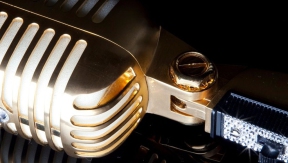
Caring for your instrument
For many musicians, their instrument is like an extension of their own body, an object that is cherished with the utmost care. Whether you are a licensed instrument collector or a simple musician, you know that your instrument demands (and deserves) full attention to ensure that you are getting the most out of it. For artists whose voice is their instrument, read more here.
Here are some tips to avoid issues and prolong your instrument's life.
Pull out the cover
Almost all instruments have some sort of protection specifically adapted to them. This is, above all else, the first thing to respect: never transport your instrument without first covering and protecting it. A simple case, a quilted cover or flight case, be it flexible or hard protection, in any form will prevent bumps and scratches. Regularly check the condition of the cover itself including the handles and zippers to prevent them from giving out suddenly and causing any unexpected falls. Despite their abnormal shape and size, large instruments like pianos and harps, should also be protected. Pay attention as well to small crevices and be sure to cover them too especially if you have pets.

Get a leg to stand on!
Always remember the law of physics that is as powerful as Murphy’s and the same one that makes jam slide off of sliced bread: Newton's Theory of Universal Gravitation. This is the law that comes into play when one leaves a guitar, for example, in a precarious balance at the moment that a gentle breeze hits it just so, causing it fall. If you have to put your instrument upright, make sure it is secure and snug before leaving it alone or better yet make use of an instrument’s best friend: the foot, rack or stand. For guitars, bass, keyboards and even some of the odd-shaped instruments, stands exist for all shapes and sizes.
Not too hot and not too cold
Never expose your instrument to extreme temperatures or temperature fluctuations.
If it is -10° C (50° F) outside and 20° C (68° F) inside the room where you will be playing, allow time for your instrument to adapt to the temperature change before removing it from its protection.
Also, do not store your instrument near a radiator or any opening under direct sunlight or with drafts. Variations in temperature and humidity affect tuning as well as an instrument's wood, causing it to warp or crack under extreme temperatures. Overall, if you have any doubt of what is too hot or too cold for your instrument, use yourself as a gage. Like you, your instrument does well in moderate temperatures (the ideal is between 19 and 20° C / 66.2 and 68° F) and places that are neither too wet nor too dry.
Keep an eye out
In any circumstance, always keep an eye on your instrument in case of theft or as protection from a passersby.
Time to clean!
Clean your instrument regularly with a clean, dry towel, free of fuzz or lint, to wipe off any fingerprint traces, dust and build-up. Avoid all types of household cleaning products as this may harm the wood.
In order to clean the parts of your instrument made from wood, you can try a polishing product, but start lightly, and use no more than once a month at the risk of adding unnecessary layers after each application.
Tender love and care
For string instruments, be sure to change the strings regularly lest they oxidize under the combination of dust and sweat as they tend to lose their shine and elasticity and become brittle. To delay this, don’t hesitate to use lubricant products (like the brand Fast Freight), for everyday use. Clean or even change the damaged metal parts of your instruments, such as frets on basses or guitars, which are prone to corrosion due to sweat.
A little bit of exercise
Work the mechanical parts of your instrument. On a guitar, for example, regularly move the pickup selector to avoid oxidation and noise spurts that may result.
DIYers abstain
Under no circumstance should you play DIY with your instrument if you are not experienced. Contact a competent professional if you don’t have previous experience or perfect command of the fixing process.
Annual spring cleaning
Once a year try a thorough scrub and upkeep of your instrument as doing so will help it last for years to come.
Published on: 1 de novembro de 2018



